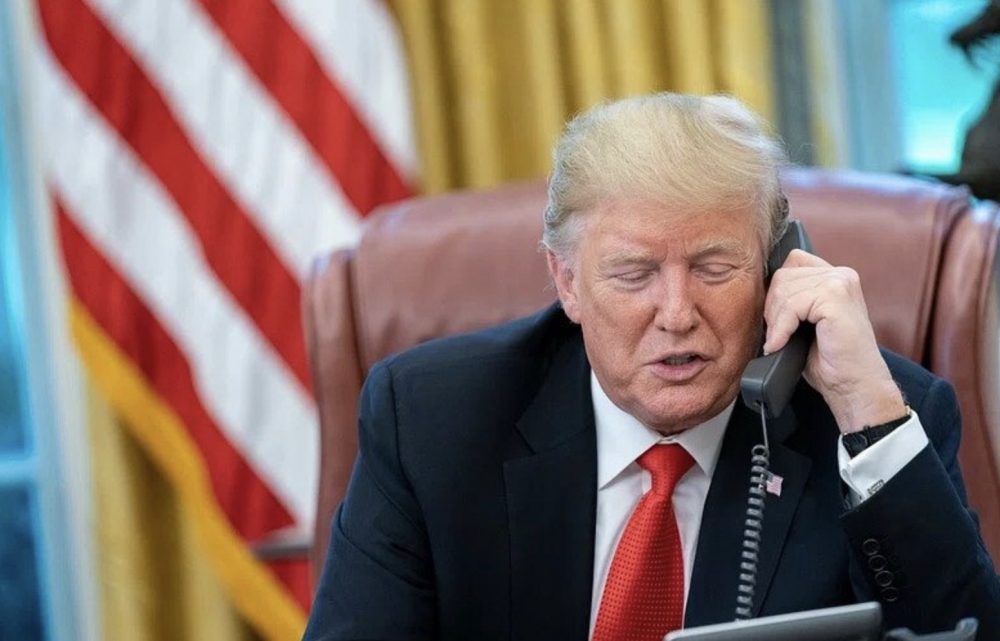Donald Trump threatens tariffs on films produced outside of the US
Last month, Donald Trump reiterated his threat to impose tariffs on films produced outside of the US. Claiming that the American film industry has been stolen by foreign countries and is “dying a very fast death”, Trump announced plans to impose “100% tariffs on any and all movies that are made outside of the United States”.
Trump did not specify when or how the tariffs would come into force, and it is unclear whether they would extend to films streamed rather than watched in cinemas.
While these tariffs seem radical, they are not unprecedented: in 1927, the UK implemented the Cinematograph Films Act as an attempt to stimulate the declining British Film industry. It gave cinemas quotas of British films to show weekly. Films such as Badger’s Green (1934) and Strictly Business (1931) were a few of the ‘Quota Quickies’ pushed to be shown in UK cinemas. This was partially successful – British films’ share of UK screens rose to around 30%, but many were low-budget and low quality.
Nine of the ten highest grossing films of 2025 globally were produced in the US.
In a digital age however, it seems unrealistic for the government to give quotas to households to watch more American-produced films. The ten highest grossing films of all time are American. Nine of the ten highest grossing films of 2025 globally were produced in the US, an inconvenient truth for Trump’s claim that the film industry had been stolen by foreign countries. It also ignores the trend for international cooperation on film production: Wallace and Gromit have been a huge international success for the British film industry, but even there, the most recent installment of the series – Vengeance Most Fowl – was jointly funded by the BBC and Netflix. Hamnet, the 2025 film that premiered at the London Film Festival to widespread Oscar buzz, was directed by American filmmaker Chloe Zhao and produced by Steven Spielberg, yet filmed primarily in Herefordshire and with a mainly British and Irish cast. It is unclear whether films like these will be declared ‘American’ films and therefore not subjected to tariffs.
The word ‘foreign’, as it relates to films, has become a somewhat meaningless term – Wicked, Jurassic World Rebirth, and even Barbie, were shot in the UK, partly because it is cheaper to produce film and TV due to tax incentives like the Film Tax Relief, which gives film companies a 25% tax refund.
New tariffs could reduce the success of smaller UK-based films in the American market, limiting exposure to cities closer to home if distributors choose not to import them.
In the West Midlands, film and TV production are predicted to increase after the BBC announced its expansion in the region by increasing spending to £40 million a year by the end of next year. Previous BBC productions like the hit film Nativity and series This Town were filmed in Coventry. One local mother whose two children had roles in the film, told the BBC they had been ‘great for the city’, showing off its talent and environment. New tariffs could reduce the success of smaller UK-based films in the American market, limiting exposure to cities closer to home if distributors choose not to import them.
It is also not clear what the impact on moviegoers would be if these tariffs were implemented. The tariffs could be passed on, like other products, to consumers through their cinema ticket prices, or those accessing films digitally through increases in subscription rates.
For regions like the West Midlands, which have seen surges of film production and investment, policies targeting ‘foreign’ films could limit opportunities for exposure and growth. Opponents of Trump’s tariffs in other spheres have taunted him for repeated U-turns by waving placards announcing TACO – Trump Always Chickens Out. The British film industry is waiting to find out if its future is going to be more like Chicken Run or A Close Shave.

Comments